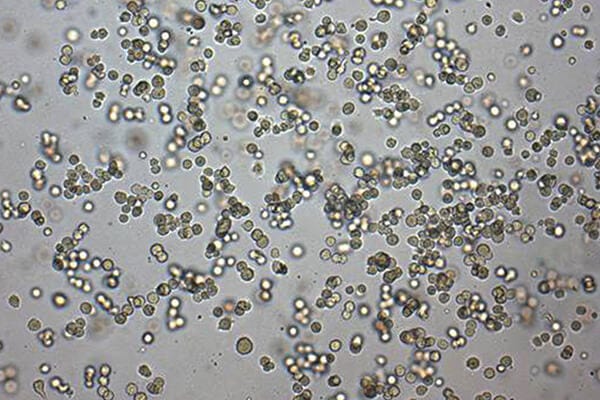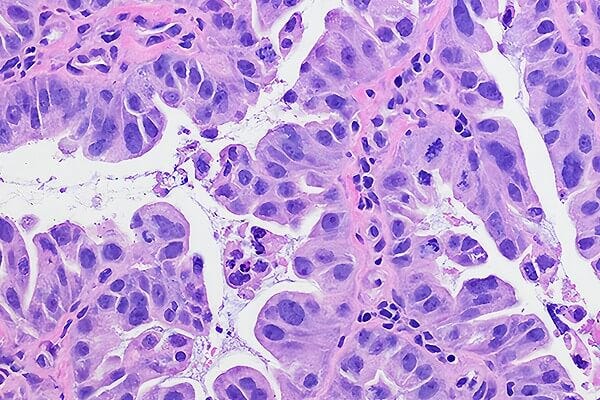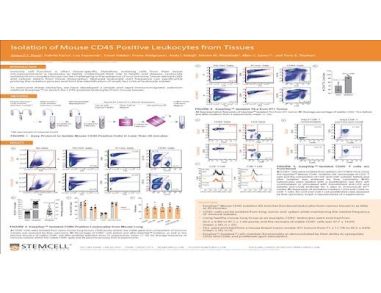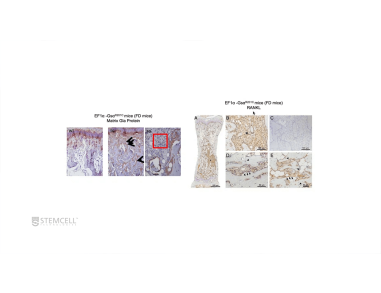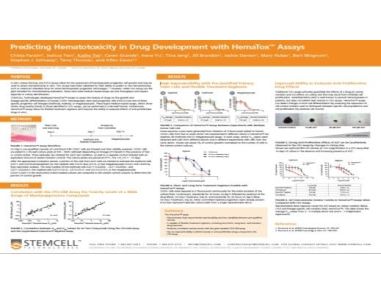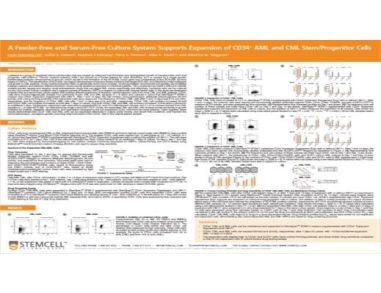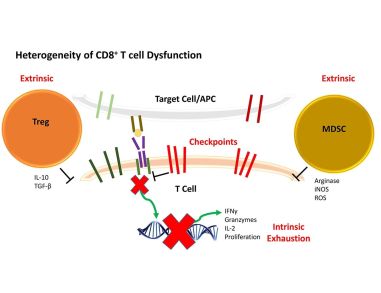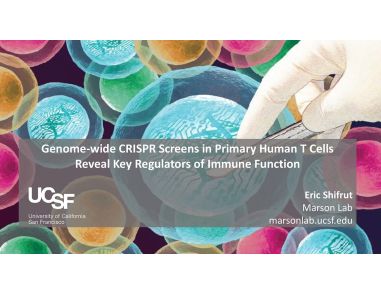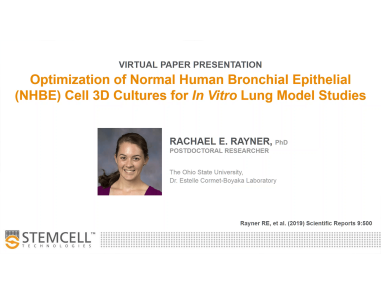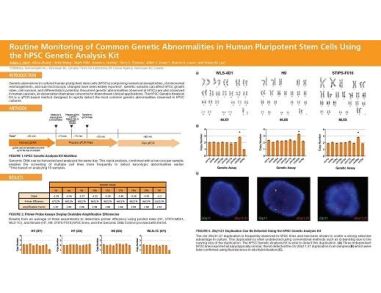Areas of Interest
-
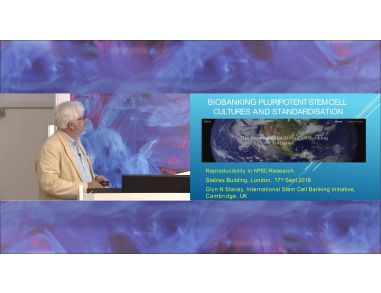 Nature Research Round Table: Standards for Pluripotent Stem Cell Banking Dr. Glyn Stacey, Director of the International Stem Cell Banking Initiative (ISCBI), discusses standards for pluripotent stem cell (PSC) banking with a focus on scientific challenges for PSCs, standardization of ethics, the role of stem cell biobanks, and best practices for cell therapy. This presentation and the following Q&A session were moderated by Dr. Joanne Mountford from the University of Glasgow.
Nature Research Round Table: Standards for Pluripotent Stem Cell Banking Dr. Glyn Stacey, Director of the International Stem Cell Banking Initiative (ISCBI), discusses standards for pluripotent stem cell (PSC) banking with a focus on scientific challenges for PSCs, standardization of ethics, the role of stem cell biobanks, and best practices for cell therapy. This presentation and the following Q&A session were moderated by Dr. Joanne Mountford from the University of Glasgow.
This presentation was part of a Round Table series titled “Challenges in Ensuring hPSC Quality”, hosted in partnership with Nature Research. Global experts gathered at the Springer Nature headquarters in London, UK, to tackle some of the most pertinent issues impacting the use of human pluripotent stem cells (hPSCs), ranging from fundamental biology research to therapeutic applications. Explore the full series here. -
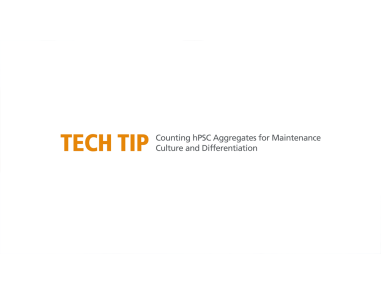 How to Count hPSC Aggregates to Determine Plating Density for Maintenance and Differentiation Step-by-step instructions for counting human pluripotent stem cell (hPSC) aggregates to determine and adjust the plating densities for hPSC maintenance and differentiation
How to Count hPSC Aggregates to Determine Plating Density for Maintenance and Differentiation Step-by-step instructions for counting human pluripotent stem cell (hPSC) aggregates to determine and adjust the plating densities for hPSC maintenance and differentiation -
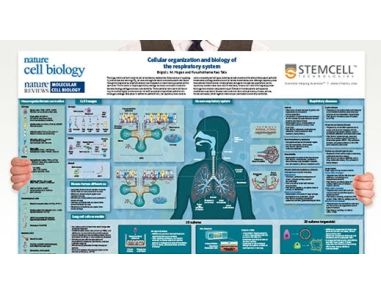 Cellular Organization and Biology of the Respiratory System Overview of the organization and function of different parts of the respiratory system
Cellular Organization and Biology of the Respiratory System Overview of the organization and function of different parts of the respiratory system -
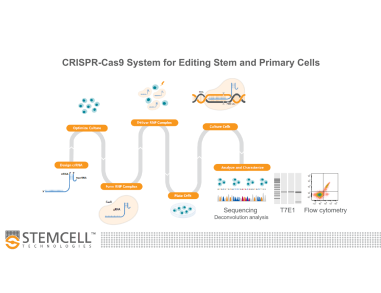 Optimized Workflows for High-Efficiency Genome Editing in Stem and Primary Cell Types CRISPR-Cas genome editing in cell culture systems is a powerful technique for disease modeling and the development of cellular therapies. Compared to work with immortalized cell lines, genome editing of stem and primary cells presents unique challenges, including issues related to efficient delivery and expression of CRISPR machinery, clonogenicity, and cytotoxicity. In this webinar, our in-house expert, Dr. Ashley Watson, discusses optimized workflows for CRISPR-Cas9 genome editing in human pluripotent stem cells and primary T cells.
Optimized Workflows for High-Efficiency Genome Editing in Stem and Primary Cell Types CRISPR-Cas genome editing in cell culture systems is a powerful technique for disease modeling and the development of cellular therapies. Compared to work with immortalized cell lines, genome editing of stem and primary cells presents unique challenges, including issues related to efficient delivery and expression of CRISPR machinery, clonogenicity, and cytotoxicity. In this webinar, our in-house expert, Dr. Ashley Watson, discusses optimized workflows for CRISPR-Cas9 genome editing in human pluripotent stem cells and primary T cells.

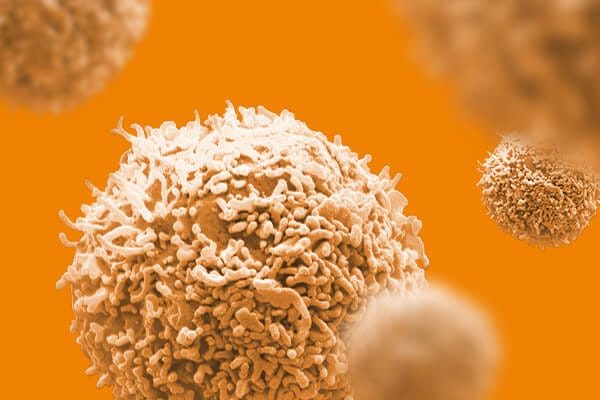
 EasySep™小鼠TIL(CD45)正选试剂盒
EasySep™小鼠TIL(CD45)正选试剂盒
